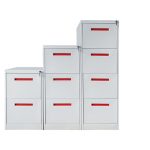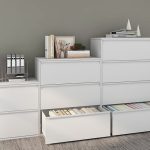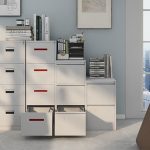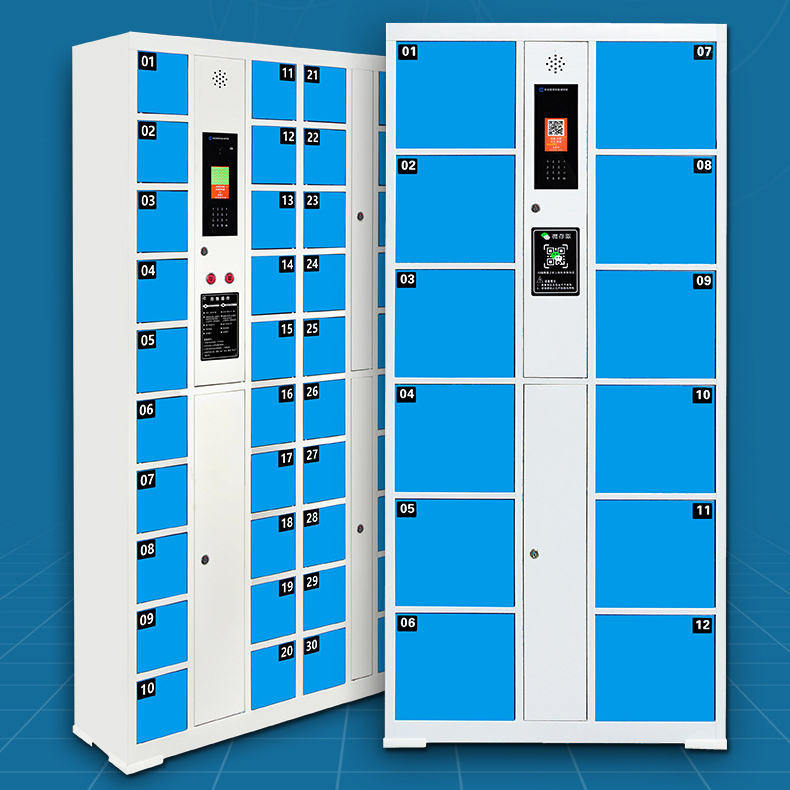
With the continuous advancement of technology, more and more areas of life are beginning to introduce intelligent solutions. Among them, smart lockers, as an innovative storage solution, are changing the way of storing and retrieving things.
What are smart lockers?
Smart locker is an electronically controlled storage devices that offer a safe, convenient, and contactless access experience through advanced technical means. Users can control and access lockers via fingerprint recognition, facial recognition, RFID cards, mobile phone apps, and more. These lockers usually connect to the Internet, allowing remote monitoring and management, so users can easily access items at any time.
People use smart lockers in various locations such as offices, schools, shopping malls, residential areas, gyms, and logistics centers. The core purpose of smart lockers is to enhance convenience, security, and accessibility, offering users an efficient and safe way to store and retrieve items.
Key features of smart lockers
Remote access and control
Smart lockers allow users to manage and access lockers remotely via mobile apps, web pages, or other electronic devices.
Efficient security
Users can access smart lockers through digital passwords, electronic keys, fingerprint recognition, facial recognition, RFID cards, and other methods. Only authorized personnel can open the lockers. Additionally, many smart lockers incorporate security measures such as encrypted transmission and dual authentication to prevent information leakage and item loss.
All-weather use
Smart lockers operate 24/7, allowing users to retrieve their items at any time, no longer limited by business hours.
Package storage and retrieval
One common use of smart lockers is for package storage. Couriers can place packages in smart lockers, and recipients can pick them up at their convenience, improving the efficiency of logistics distribution.
Real-time tracking and reporting
Many smart lockers feature smart software that tracks and records access time and user details in real-time. This transparency and traceability are crucial in business settings, especially when handling valuable or sensitive items.
Flexible space configuration
Smart lockers are often designed to be modular, enabling companies or individuals to add or remove lockers according to their needs. This flexibility allows them to adapt to different environments and provide highly customizable storage solutions.
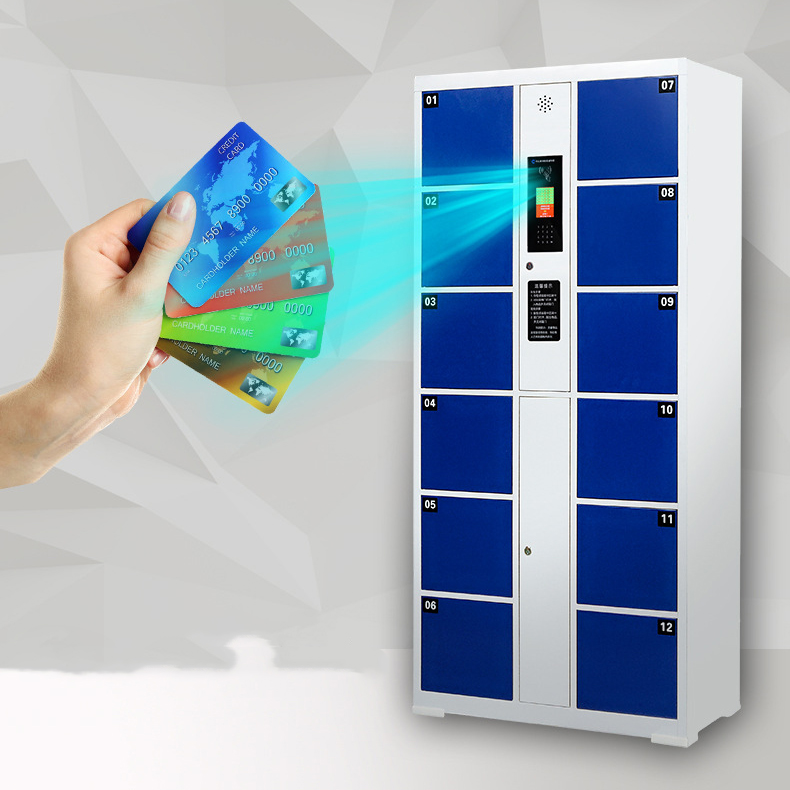
Advantages of smart lockers
Convenience: Users can easily open the locker by simply using their mobile phone or biometric technology.
Improved security: Smart lockers secure items using various authentication methods, effectively preventing theft or loss.
Save time: Smart lockers save users a lot of time. Users don’t have to wait for door-to-door delivery or stand in line. This efficiency makes both work and life easier.
Environmental protection: Intelligent access methods reduce the need for manual labor and minimize unnecessary transportation and logistics activities, helping to reduce carbon emissions.
Cost-effectiveness: Smart lockers lower manual management costs. Automation systems help enterprises improve efficiency, reduce labor costs, and achieve higher operational benefits.
Common application scenarios of smart lockers
Package collection and delivery: Smart lockers serve as transit stations for package delivery and pickup. Express companies and online retailers use smart lockers, allowing users to pick up items at any time without waiting for delivery.
Office Environment: In modern office environments, smart lockers not only provide employees with secure storage for personal items but also manage and store important documents and equipment.
College Campuses: Many college campuses use smart lockers to provide package retrieval services, especially in dormitory buildings, where students can pick up their packages during class breaks or free time.
Retail Industry: Retailers use smart lockers to offer self-pickup services. After customers place online orders, retailers store the goods in smart lockers, and customers pick up their items at their convenience.
Residential Communities: In large residential communities, smart lockers receive express parcels, and residents can pick them up at their convenience.
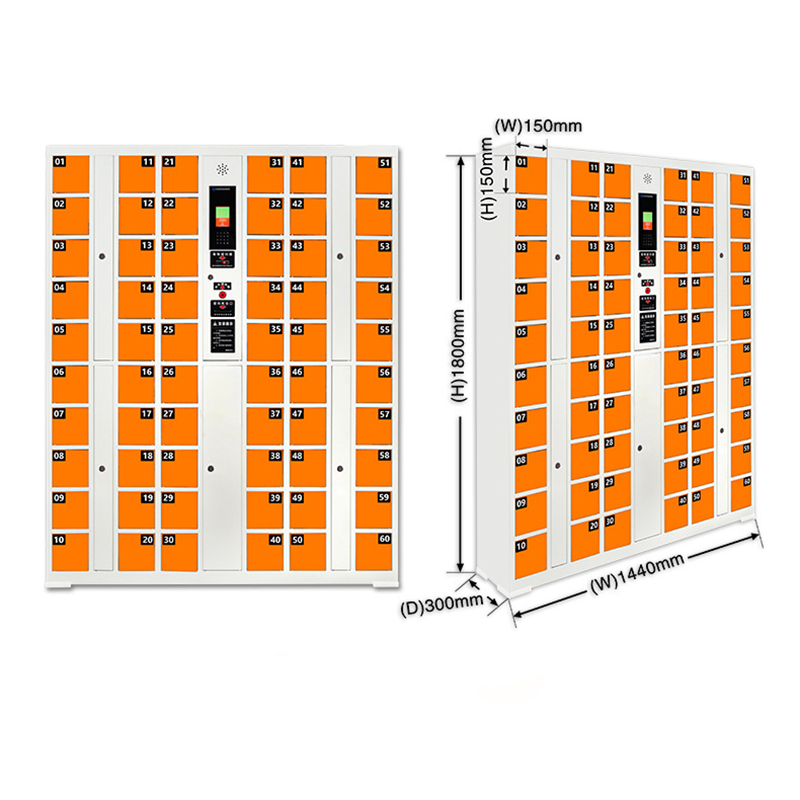
FAQ:
How do I use a smart locker?
To begin, select an available locker through the system or app. Then, unlock it using a code, password, RFID card, or biometric scan. Once you place your items inside, the door will lock automatically. To retrieve your items, simply unlock the locker the same way.
What if I forget my password?
If you forget your password, you can reset it through the "Forgot password" option, which will send a verification code to your email or phone. However, if this doesn't work, you can contact the administrator or provider for further assistance.
Are smart lockers safe?
In general, smart lockers are highly secure. They employ strong authentication methods such as passwords, biometrics, or RFID. Additionally, the lockers are constructed from durable materials, and many are equipped with tamper detection and alarm systems for extra protection.
What can I store in a locker?
You can store a variety of personal items, including bags, clothes, books, and electronics. However, certain lockers, especially those for parcel delivery, may have restrictions on storing perishable or hazardous items like chemicals or food. Be sure to check the locker service rules for specific details.
What if I miss the retrieval time?
In case you miss the retrieval time, most lockers will notify you when items remain uncollected. Additionally, some systems may reallocate lockers or transfer items for safety purposes. For more information, refer to the specific rules of the locker service you're using.
How can I change or cancel my locker?
If you wish to change or cancel your locker selection, this can usually be done before the locker door locks. Once your items are inside and the locker is confirmed, changes cannot be made. In this case, you can reach out to the administrator for assistance.
What if the locker is low on power or malfunctions?
If the locker experiences low power or a system failure, you should contact customer service or an administrator for help. Some systems are equipped with backup batteries to maintain temporary functionality, but more serious issues may require technician support.
How can I get a usage or access log?
Some smart locker systems allow you to view your access records or usage logs through the app or platform. If needed, you can also contact the provider or administrator to obtain detailed logs or resolve any concerns.
How much does it cost to use a smart locker?
The cost of using a smart locker depends on the type of locker and how long you use it. Some lockers offer free short-term use, while others may charge for extended or premium services. You can find the fee details in the system interface or app, or consult the service provider for more information.


